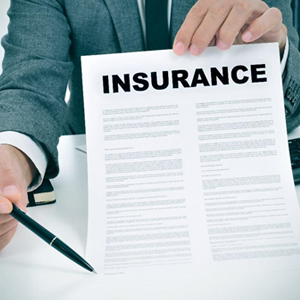
Uninsured motorist accidents refer to traffic collisions where at least one party involved does not carry the legally-required auto insurance. A significant component of motor vehicle operation involves the potential risk of accidents. With this in mind, states impose mandatory liability insurance requirements to ensure that drivers are financially responsible for any harm or damage caused by accidents they instigate.
The issue arises when a driver bypasses this requirement, either knowingly or unknowingly, and navigates the roads without appropriate insurance coverage. When an uninsured motorist is at fault in an accident, the scenario becomes complicated. The financial burden of car repairs, medical bills, and other associated costs, which ideally should have been undertaken by the at-fault party’s insurance company, becomes unaccounted-for.
The victims in these accidents, therefore, face undue stress and financial strain. Not only do they have to manage physical injuries and emotional trauma from the accident, but they must also navigate complex scenarios for obtaining compensation for property damage and medical costs. The uninsured driver, without the financial buffer an insurance policy offers, is often incapable of assuming these expenses, leaving the victims with limited recourse.
Uninsured motorist accidents present a unique set of challenges. Besides the expected aftermath of a typical car accident, such as dealing with car repairs or physical injuries, victims must also face the added inconvenience and stress caused by the uninsured status of the offending motorist. It’s crucial for anyone involved in such incidents to understand the actions required to protect their interests. In this regard, advice and representation from experienced legal professionals can prove invaluable.
Although these terms appear similar, underinsured motorist (UIM) coverage and uninsured motorist (UM) coverage cater to different situations resulting from accidents involving motorists with insufficient or no insurance. Understanding their distinctions is vital when selecting the best protection plan.
Uninsured motorist coverage (UM) safeguards you in cases where the at-fault driver has no auto insurance. The coverage compensates for your damages and injuries up to the UM policy limits. This includes medical bills, property damage, lost wages, and other expenses that arise due to the accident.
Underinsured motorist coverage (UIM) comes into play when the at-fault driver has insurance, but their policy’s liability limits are too low to cover all your damages and medical expenses. In such a scenario, your UIM coverage compensates for the remaining balance up to your UIM policy limits, thus ensuring that you receive the required financial support.

Combining both coverages offers comprehensive protection, ensuring that you are financially secure and well-protected if faced with accidents involving uninsured or underinsured drivers. It’s advisable to consult with an insurance agent or a legal expert to assess the best options for your unique situation and guarantee you have the proper coverage in place before encountering such incidents.
In Georgia, the state laws offer specific provisions for victims of uninsured drivers, enabling them to secure compensation via their own auto insurance policies. This is made possible through uninsured motorist (UM) coverage – a specific type of insurance protection designed to shield policyholders from the financial implications of an accident caused by an uninsured or underinsured driver.
Understanding the specifics of UM coverage is key when navigating a UM accident in Georgia. Firstly, UM coverage isn’t a mandatory requirement for drivers in Georgia. However, this doesn’t imply it’s an insignificant aspect of your insurance policy. The state law dictates that every auto insurance provider must extend an offer for UM coverage to their clients.
The offering must match the liability limits on the existing policy, unless the client chooses lower limits. If you decide not to purchase UM coverage, your insurer must obtain a written acknowledgment of your refusal. This ensures that drivers are made fully aware of their decision and the potential risks attached to opting out of this coverage.
Under your UM coverage, you are eligible to claim compensation for all damages and injuries sustained in the accident, up to the limits of your policy. This includes, but is not limited to, medical bills, repair costs for vehicle damage, and lost wages due to the inability to work while recovering from the accident.
Should the damages exceed your UM policy limits, your options for recovering the remainder become complicated as the uninsured driver may not have the financial means to cover your losses. This scenario underscores the value of carrying UM coverage. Without this, victims of uninsured drivers could face significant out-of-pocket costs, even when they’re not at fault.
It’s crucial to consult with a legal expert in auto insurance claims, who can help navigate the complexities of uninsured motorist accidents and ensure you receive the full compensation you’re entitled to.
Uninsured motorist (UM) coverage safeguards you when the at-fault party lacks adequate insurance. It covers your medical bills, lost wages, and damage to your vehicle. Without UM coverage, you might have to pay out-of-pocket. Therefore, it’s advisable to carry this coverage despite it being optional.
Following a proper protocol after an uninsured motorist accident can help you navigate the situation more efficiently. Here are some critical steps:
1. Call the police: Report the accident to the police, regardless of its severity. An official police report strengthens your claim.
2. Document the accident: Gather as many details as you can. This includes the other driver’s contact information, alongside pictures, witness information, and the scene’s description.
3. Inform your insurance company: Notify your insurer about the accident immediately.
4. Seek medical attention: Don’t overlook the importance of a medical checkup after the accident. This helps in documenting your injuries and their connection to the accident.

We understand Georgia’s traffic laws and have vast expertise in uninsured motorist cases. We work with you to navigate the legal process, negotiate with the insurance companies, and ensure maximum compensation for your injuries and damages.
Facing a collision with an uninsured driver can evoke feelings of frustration and helplessness. However, with appropriate steps and reliable legal representation, you can overcome these challenges. #Cohen & Sinowski are committed to helping you protect your rights and secure what you’re entitled to.
Reach out to us at www.cohensinowski.com today to schedule a free consultation. Remember, at #Cohen & Sinowski, we believe #LocalMatters!